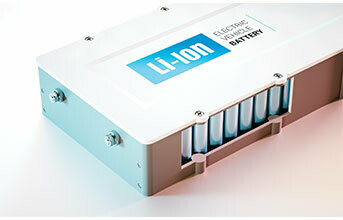
Innovating new cell chemistries
In EVs, advanced cell chemistries serve as most critical component. While Lithium-ion batteries is the most preferred choice for EVs, Lithium Nickel Manganese Oxide (NMC) is the most predominant cathode chemistry. However, according to experts, Lithium Iron Phosphate (LFP) will gain prominence in future, owing to its higher thermal stability and lower production cost.
Though several other chemistries are in development process, Indian nanotechnology company, Log9 Materials is working extensively on Lithium Titanate Oxide (LTO) cell chemistry for developing fastest charging and longest lasting EV batteries for 2Ws, 3Ws, and 4Ws. "We are the first ones to use LTO chemistry in India and are also introducing our new product range based on Lithium Ferrous Phosphate (LFP) cell chemistry with cooling management systems and thermal management systems in place for mid mile logistics sector," said Co-Founder and Director of Log9.
Besides, iPower Batteries recently introduced the RugPro battery series, utilising LMFP chemistry. "This combines the advantages of both NMC and LFP technologies. Like NMC, it offers a high energy density, while also possessing the high thermal stability characteristic of LFP. We believe that this new chemistry will play an important role in the Indian EV market," asserts Aggarwal.
Making cell production greener
Cell production remains the largest greenhouse gas (GHG)-emitting step in battery production. When asked about how manufacturers can make cell production greener, to which Sharma said, "Our cell production process involves aqueous processing of cell electrodes by eliminating the use of toxic solvents which in turn minimises energy utilisation and harmful gas emissions." Further, he noted that the company works on a no-Cobalt chemistry that reduces the carbon emissions by 50 per cent. Also, for faster and efficient production of cells with optimised energy consumption, Log9 is using tabless technology for developing large cylindrical format cells.
Battery swapping
With limited charging infrastructure in India, battery swapping is seen as a viable alternative to it. One of the primary advantages of battery swapping is the significantly reduced recharge time compared to conventional charging methods. While charging an EV can take hours, battery swapping can be completed in a matter of minutes. This quick turnaround time allows drivers to get back on the road faster, making it a viable option for those who require frequent and efficient recharging.
For Pankaj Sharma, battery swapping is not a promising route for keeping the vehicles on road. Especially not in rural areas where the density of the vehicles is significantly lower than urban centres. "Swapping requires very high density of vehicles of same type using same batteries for it to be viable, it's not even possible in urban centres forget rural India," he added.
Sharma feels that Battery swapping is an operational solution to today's cell and battery level technological constraints. "While it aids faster adoption of EVs, swapping does very little to solve the inherent technological challenge of finding the right energy and power density mix for an economically viable and scalable solution," he highlighted.
"From the high CAPEX that it entails to operational complexities arising out of different battery models, to concerns around safety given swappable packs must be light enough for consumers to carry and space efficient, leaving little room for active cooling - battery swapping comes with more risks and challenges than a benefit to the customer," Sharma noted further.
Skill development
The scope of skill development in battery manufacturing is substantial, given the growing demand for batteries across various industries. Battery manufacturing requires a deep understanding of battery chemistry, materials, and production processes.
While there is a huge gap in terms of employing skilled workers, to bridge this gap, iPower Batteries have initiated a comprehensive skill upscaling program aimed at offering battery analysis and repair training to people. Upon completion of this training program, participants will be equipped with the necessary knowledge and practical skills to either establish iPower battery service centres or pursue employment opportunities within the electric vehicle (EV) and battery industry.



























